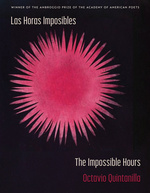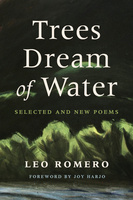The University of Arizona Press is the premier publisher of academic, regional, and literary works in the state of Arizona. They disseminate ideas and knowledge of lasting value that enrich understanding, inspire curiosity, and enlighten readers. They advance the University of Arizona’s mission by connecting scholarship and creative expression to readers worldwide.
Publishing Latinidad
Latinx Literary and Intellectual Production, 1880–1960
Publishing Latinidad argues that late nineteenth- and early twentieth-century Latinx authors and intellectuals engaged with alternative print cultures and literary genres to theorize about their racial and ethnic identities in relation to other nonwhite groups in the United States.
México Between Feast and Famine
Food, Corporate Power, and Inequality
As debates around food sovereignty, globalization, and sustainable development intensify globally, México Between Feast and Famine provides timely analysis that counters conventional narratives about Mexican cuisine. Historian Enrique C. Ochoa examines the rise of Mexico’s corporate food system, contextualized by the long history of colonialism. Ochoa also looks to the future, offering a vision of more equitable and sustainable food systems that prioritize social justice and community well-being.
Walled
Barriers, Migration, and Resistance in the U.S.-Mexico Borderlands
Thirty years after the first mile of border walls was constructed in the San Diego–Tijuana region, this volume invites readers to reflect on how the border has evolved and what durable impacts came from these initial fourteen miles of border walls—and the 1,940 miles constructed since.
The Rise of Necro/Narco Citizenship
Belonging and Dying in the Southwest North American Region
The Rise of Necro/Narco Citizenship offers a comprehensive exploration of the sociopolitical, economic, and cultural forces shaping the Southwest North American Region. Written by Carlos G. Vélez-Ibáñez, this work introduces the innovative concept of necro/narco citizenship, shedding light on how violence, militarization, and socioeconomic disruptions create unique forms of existence and identity on both sides of the U.S.-Mexico border.
Gardening at the Margins
Convivial Labor, Community, and Resistance
This book explores how a group of home gardeners grow food in the Santa Clara Valley to transform their social relationships, heal from past traumas, and improve their health, communities, and environments.
Specters of War
The Battle of Mourning in Postconflict Central America
Specters of War explores mourning practices in postwar Central America, particularly in El Salvador and Guatemala. Sarmiento delves into the intricate dynamics of grieving through an interdisciplinary lens, analyzing expressions of mourning in literature, theater, and sites of memory. At the heart of this analysis is the contention over who has the right to mourn, how mourning is performed, and who is included in this process. Mourning is a battleground where different societal factions vie for the possibility of grieving the dead.
Las Horas Imposibles / The Impossible Hours
In Las Horas Imposibles / The Impossible Hours, Octavio Quintanilla takes us on a profound journey through borders and disquiet, love and longing, the unsaid and the unsayable. The perpetual search for wholeness is confounded and shadowed by all the brutal things intent on breaking us: distance, time, language. In these poems, the lyrical and concrete intertwine—complicating our notions of immigration, imagination, and identity. Culminating in a long poem that closes the collection, Las Horas Imposibles is an inevitable revelation of vulnerability amid quiet violence.
The Hohokam and Their World
An Exploration of Art and Iconography
The Hohokam and Their World explores how the Hohokam used art forms such as pottery, shell ornaments, carved stone, and rock imagery to convey their views of the world and their ideas about water, the Sonoran Desert, the ocean, travel, ancestors, and the cosmos.
Star Gazers
Finding Joy in the Night Sky
A flash, a single streak of light, is what sparked David Levy’s passion for astronomy more than sixty years ago. In this delightful collection of essays, Levy shares not only his love for the sky and stars, but also his love for language and literature. With the voice of a poet and the eye of a skilled, albeit amateur, astronomer, Levy takes us on a glorious adventure as large as the universe.
Trees Dream of Water
Selected and New Poems
In Trees Dream of Water Leo Romero offers up ancestral history and personal journeys through the landscapes of northern New Mexico. The poetry weaves together a lyrical exploration of identity, memory, and the natural world, inviting readers on a captivating journey of self-discovery that spans Romero’s career.











